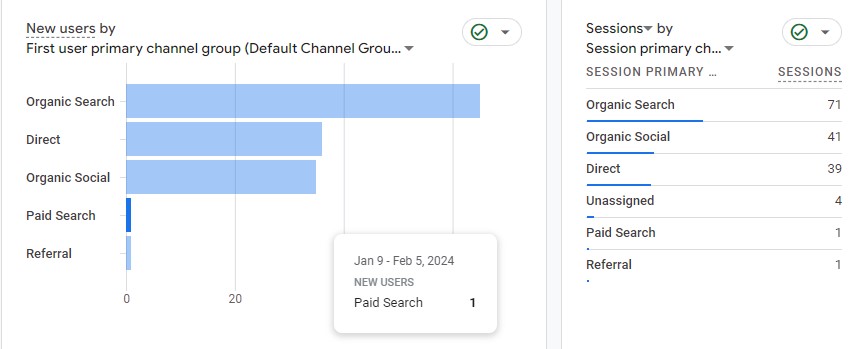In today’s fast-paced digital landscape, small businesses are increasingly turning to online platforms to establish their presence and reach a broader audience. While having an online presence is crucial, leveraging online analytics has become equally important for small businesses to thrive in the competitive market. In this article, we will delve into the significance of online analytics for small businesses, exploring examples such as Meta Analytics (formerly Facebook Analytics) and Google Analytics, and how they can be game-changers in driving growth, making informed decisions, and staying ahead of the curve.
Understanding Online Analytics
Online analytics involves the measurement, collection, analysis, and reporting of web data to understand and optimize web usage. Meta Analytics and Google Analytics are two prominent tools that provide businesses with comprehensive insights into user behavior, traffic sources, and engagement metrics.
Data-Driven Decision Making:
Meta Analytics offers businesses a deep dive into user interactions on the Meta platform, allowing small businesses to understand how users engage with their content, which posts drive the most engagement, and demographic information about their audience. Similarly, Google Analytics provides a wealth of information about website performance, user demographics, and popular content, aiding small businesses in making data-driven decisions to tailor their strategies to user preferences.


Measuring Marketing ROI:
Both Meta Analytics and Google Analytics offer tools to measure the return on investment for online marketing efforts. Meta Analytics provides insights into the performance of ad campaigns on Meta platforms, while Google Analytics tracks the effectiveness of various online channels, helping small businesses identify the most lucrative marketing channels and refine their strategies accordingly.
Real-Time Monitoring:
Google Analytics provides real-time monitoring of website traffic, allowing small businesses to react promptly to sudden changes in user behavior or site performance. Meta Analytics, too, offers real-time insights into the performance of content on Meta platforms, enabling businesses to adjust their content strategy on-the-fly to capitalize on trending topics or address emerging issues.
Competitive Advantage:
Small businesses utilizing Meta Analytics and Google Analytics gain a competitive advantage by staying informed about market trends, monitoring competitor activities, and adapting their strategies accordingly. These tools empower businesses to make agile decisions based on real-time data, positioning them ahead of competitors who may not be leveraging such analytics tools effectively.
Learning how to read and understand analytics is quite easy, there are a lot of platforms offering online certifications for you to learn, one of which is Meta https://www.facebook.com/business/learn/marketing-analytics-certificate-coursera or Google (formerly the offer in Google Garage but moved to Coursera)
In conclusion, Meta Analytics and Google Analytics exemplify the crucial role of online analytics for small businesses. From data-driven decision-making to improved customer experiences, targeted marketing, and real-time monitoring, these tools provide a powerful means for small businesses to thrive in the dynamic digital marketplace. Embracing the insights provided by online analytics tools positions small businesses to navigate the complexities of the online world and unlock growth opportunities with precision and efficiency.
